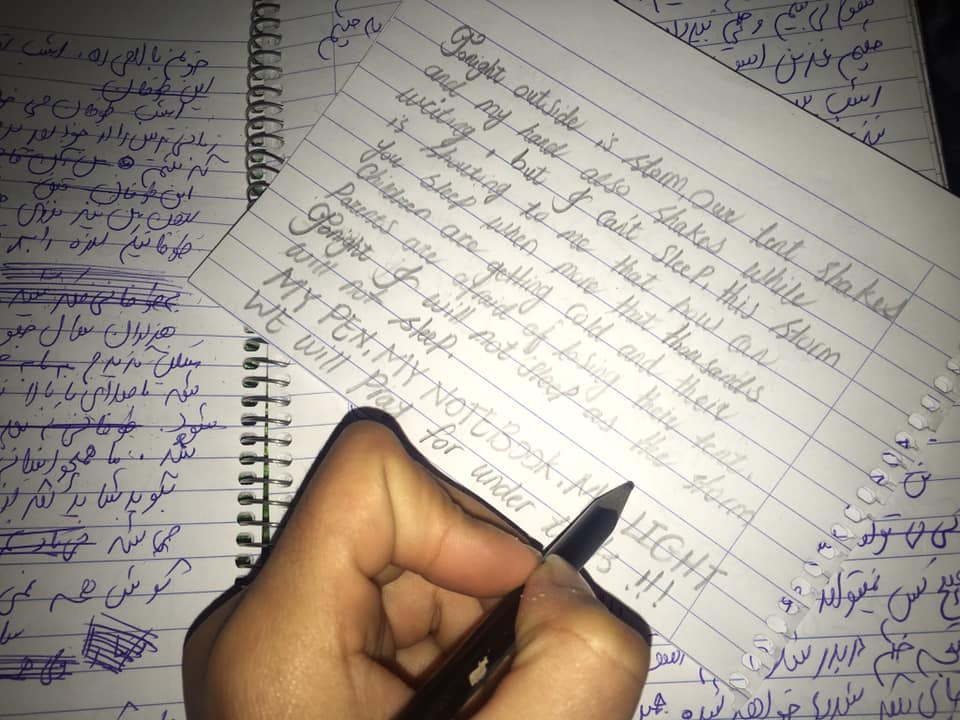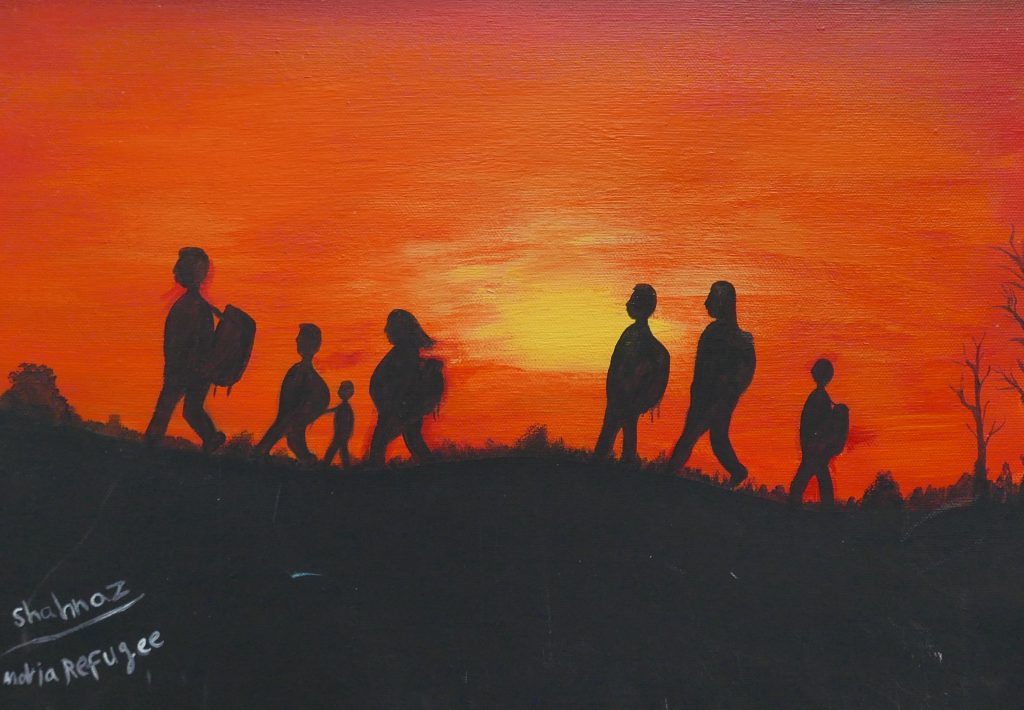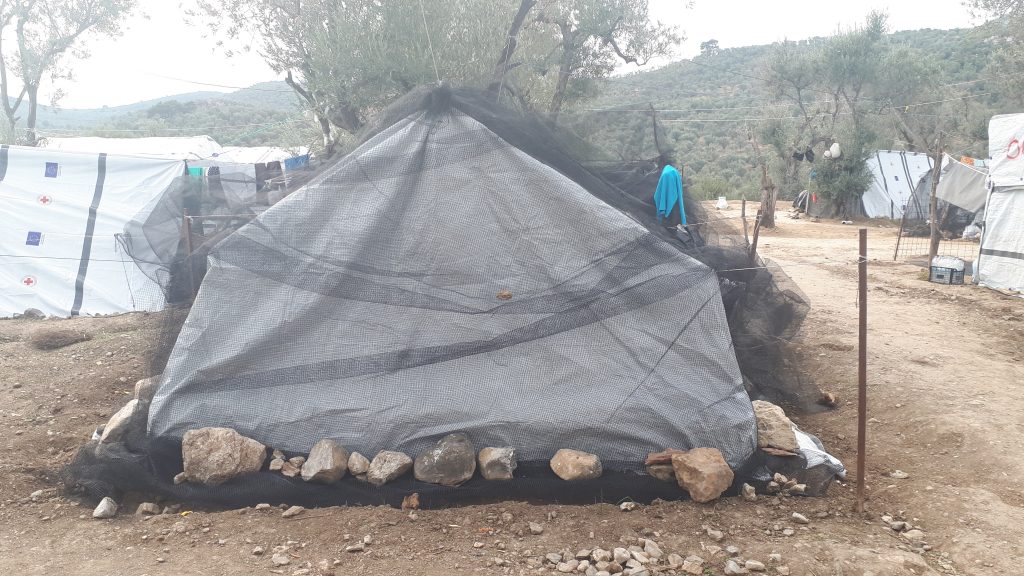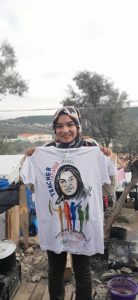!Download: Book “My pen won’t break, but borders will”!!!
In September 2019 the Watch The Med Alarm Phone received a GPS-location close to the northern coast of Lesvos. It was sent from a boat. We informed the Greek coastguard and the rescue teams on the shore. Some hours later we got in touch with the people again and they confirmed they were safe and had been brought to a camp.

It was only a few days later, when some of us went to Lesvos to remember and celebrate 10 years of struggles on this island with the network of Welcome to Europe, we contacted the people who had been on that boat and they agreed to meet us. They told us about the hard trip that was behind them, they told us that they had to try four times before finally reaching Greece. Twice they had been intercepted by the Turkish coastguard and another time blocked by the Greek coastguard near Alexandroupolis.
There was still a struggle ahead of them. They got stuck in the hotspot of Moria. Or better to say outside the hotspot of Moria – the camp had 12,000 people inside and an official capacity of just 3,000. It was crazily overcrowded already at that time, with small summer tents far up in the olive grove outside the camp. The numbers would rise in the next months – by the end of the year 21,000 people were stuck on Lesvos.

We finally shared time with the families who had travelled on the boat. There were several families from one neighbourhood, even three generations. We spent a touching dinner all together. We visited them a day later in their tents, with many musicians we went up to the olive grove, singing and dancing to the rhythms of freedom in all our languages.

Parwana, a teenage girl from Afghanistan, had been on that same boat. When we met, we spoke about dreams, future plans and we shared a lot of the daily problems she was facing. This story continues until today: It turned out that Parwana very much liked writing to express herself. First, she was shy to write in English, but as she is a bright woman, she overcame this fear quickly and started to document what she experienced in “Letters from Moria”.

Parwana’s “Letters from Moria” are published on Welcome to Europe’s blog http://Infomobile.w2eu.net. The letters talk about life in the horrible conditions of a camp made to deter people from reaching a place of safety. She changes perspectives in each of her letters. She writes from the perspective of an old woman, who bakes bread to sell in order to buy medicine for her husband, of a young boy who is afraid to lose himself, of a young woman suffering from the abuse of men all around her and she writes from the perspective of a transgender person.
These letters were written mostly at night by torchlight in the tent that Parwana shared with her eight-person family, in the olive grove. She always waited until everyone was asleep, so that she would have the peace of mind to write in the darkness with her torch. At the end of December, Parwana and her family were finally transferred to a camp on mainland Greece, where Parwana continues to document the conditions and publish her words.
This first book of hers is just the beginning. We are happy to be part of her journey
